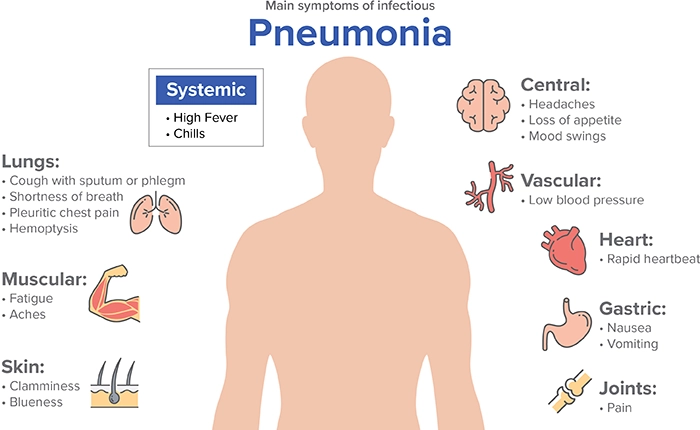
It's still that time of the year: New Year Resolutions and … an abundance of illnesses and infections like the flu, the common cold and pneumonia, all of which are more prevalent in the colder weather. For sleep apnea1 patients who use CPAP therapy, the gold-standard treatment for this sleep disorder, the risk of getting sick is even higher, as dirty CPAP masks and reservoirs2 are breeding grounds for mold, bacteria and viruses.
Sleep apnea and CPAP therapy are risk factors for pneumonia
In 2014, a team of Taiwanese researchers3 set out to investigate the link between sleep apnea, CPAP therapy and pneumonia, a potentially deadly respiratory infection that affects the lungs. They found that adults with sleep apnea had a 20% increased risk4 of being diagnosed with pneumonia than the control group. And for those who used CPAP therapy, this risk factor increased to 32%.
"This study showed that sleep apnea is an independent risk factor for incident pneumonia," wrote Dr. Vincent Yi-Fong Su & Dr. Kun-Ta Chou5, Department of Chest Medicine, Taipei Veterans General Hospital, Taipei, Taiwan, with coauthors.
"Our results also demonstrated an exposure-response relation in that patients with more severe sleep apnea may have a higher risk of pneumonia than patients with sleep apnea of milder severity."
What are some explanations for this?
There are a few different theories that may explain this increased risk of pneumonia among sleep apnea patients and CPAP users:
- With their breathing obstructed, sleep apnea patients are more likely to aspirate contents or liquid from their throat.
- CPAP machines can prevent sleep apnea patients from coughing up mucus lingering in their lungs.
- Dirty CPAP equipment contains bacteria that can cause pneumonia.
How sleep apnea patients and CPAP users can reduce their risk of pneumonia
The best step sleep apnea patients and CPAP users can take toward preventing pneumonia this year is also the easiest: Clean your CPAP equipment daily or as recommended by the manufacturer! Don't let pneumonia or other bacterial and viral illnesses cramp your style this fall and winter. Now that you know the correlation between sleep apnea, CPAP and pneumonia and understand the risk for developing this lung infection, you can be proactive and stop it before it even starts.
References
- MayoClinic – Sleep Apnea
- Comprehensive Sleep Care Center – Can a dirty CPAP make you sick?
- CMAJ - Sleep apnea and risk of pneumonia: a nationwide population-based study
- Medical Daily - Sleep Apnea May Increase Pneumonia Risk; CPAP May Increase Pulmonary Aspiration, Bacteria
- S. Pharmacist - Sleep Apnea May Heighten Risk of Pneumonia




